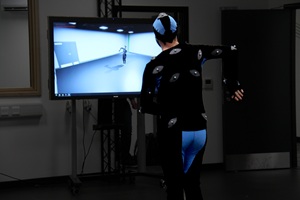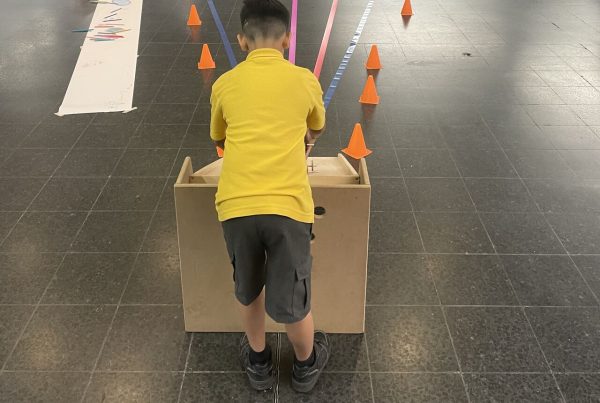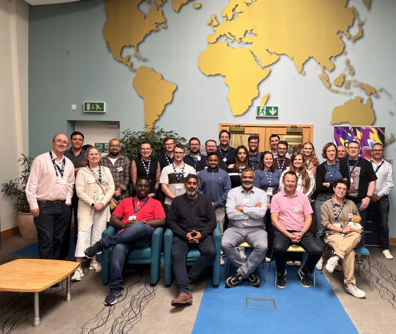
The Growing Skills Challenge in UK Logistics: Embracing Digital Solutions to Logistics Skills
As CEO of USP College, I am acutely aware of the growing challenges faced by the UK’s education sector, particularly in further education (FE). The UK is contending with a severe teacher shortage, which is not only limiting our ability to provide the skills demanded by key industries but is also creating a significant barrier to growth in sectors vital to the UK’s economic success—none more so than logistics.
The UK logistics sector, a critical engine for UK PLC, is already stretched. As the Thames Freeport works to elevate the UK’s position as a global logistics hub, the demands on education and training systems to supply a skilled workforce, particularly through digital solutions to logistics skills, have never been greater.
Learning from Global Best Practices
To address these challenges, we must explore digital solutions to logistics skills that can enhance training and education in this critical field.
Unlike some of our European counterparts, we lack specialist training institutions focused on logistics and port management. Take the Port of Rotterdam’s STC International, for example, which serves as a global leader in logistics education and training. Through its facilities in Europe, Africa, the Far East, and South America, STC International provides a world-class pipeline of talent to the port sector. Its success lies in state-of-the-art facilities and deep partnerships with government and employers. Unfortunately, such facilities and focus in the UK remain out of reach, constrained by fiscal pressures and constant reforms to our FE and skills system.
But while we may not have the funding or the infrastructure to replicate Rotterdam’s model just yet, technology allows us to take a different approach to training.
Harnessing Digital Innovation for Skills Development
At USP College, we believe that digital innovation can provide the UK with a unique opportunity to bridge the gap in logistics training without the need for vast capital investment. With our leadership in immersive technology and digital learning, USP has proposed a project, as part of the Thames Freeport initiative, that could revolutionise the way we train and develop logistics professionals in the UK.
Our bid focuses on establishing digital hubs that use cutting-edge immersive technology to deliver world-class training in port logistics. By leveraging tools like virtual reality (VR) and augmented reality (AR), we can create detailed simulations of port operations, supply chains, and logistics challenges, enabling students to gain practical, hands-on experience in a digital environment.
Connecting UK Learners with Global Experts
One of the standout aspects of our proposal is the ability to integrate global expertise into these hubs. Using our immersive rooms and digital connectivity, we can “beam in” trainers and specialists from the Port of Rotterdam and other international partners directly into UK classrooms. This means that, even without a fully established UK logistics training college, learners can benefit from the world-class expertise of Rotterdam’s STC and its partners.
This approach is not just a stopgap solution; it represents the future of skills training. Imagine students in the UK engaging in live, interactive sessions with experts thousands of miles away, watching demonstrations of best practices, participating in simulations, and receiving real-time feedback. It’s a truly global classroom model, made possible by immersive technology.
The Role of Learning Designers in Digital Training
To effectively support the ongoing training needs, USP College proposes the new role of the learning designer. These trained professionals will support students as they navigate digital learning, facilitating VR and AR sessions to ensure learning experiences are interactive and effective. The use of digital technology provides a robust and scalable solution to meet current demands.
Establishing the UK as a Global Leader in Logistics Education
By embracing this innovative approach, USP College and the Thames Freeport initiative provide the opportunity to position the UK as a leader in logistics education. Not only will this project address the immediate skills gap in the logistics sector, but it will also establish a foundation for long-term growth, enabling the UK to compete on a global stage.
A skilled workforce is not just a “nice-to-have” for the logistics sector—it’s a necessity. Ports and logistics companies need a pipeline of talent capable of managing increasingly complex operations, ensuring the smooth flow of goods, and navigating the challenges of a rapidly changing industry. The UK’s current model is unsustainable, but by leveraging immersive technologies and forging international partnerships, we can create a flexible, future-proof training model that delivers results.
A Call to Action for the Future of UK Logistics
The Thames Freeport has the potential to transform the UK’s logistics sector and provide opportunities for thousands of people across the region. But to realise this vision, we must be bold in rethinking how we deliver skills training. At USP College, we are proud to lead this charge, developing innovative, scalable solutions that will benefit both the logistics sector and the wider UK economy.
The Port of Rotterdam and its STC International training college show us what’s possible when governments, education institutions, and employers come together. With the support of the Thames Freeport Initiative, we believe we can create a similar success story in the UK—using digital technology to break down barriers and deliver world-class training, no matter the obstacles.
This blog was written by Dan Pearson CEO of USP CollegeDan Pearson is the CEO of USP College (formerly Seevic College, Benfleet and Palmer’s College, Grays), with over 25 years of experience in education, including a decade in senior leadership roles, and Strategic Leadershop qualification from University of Oxford.




